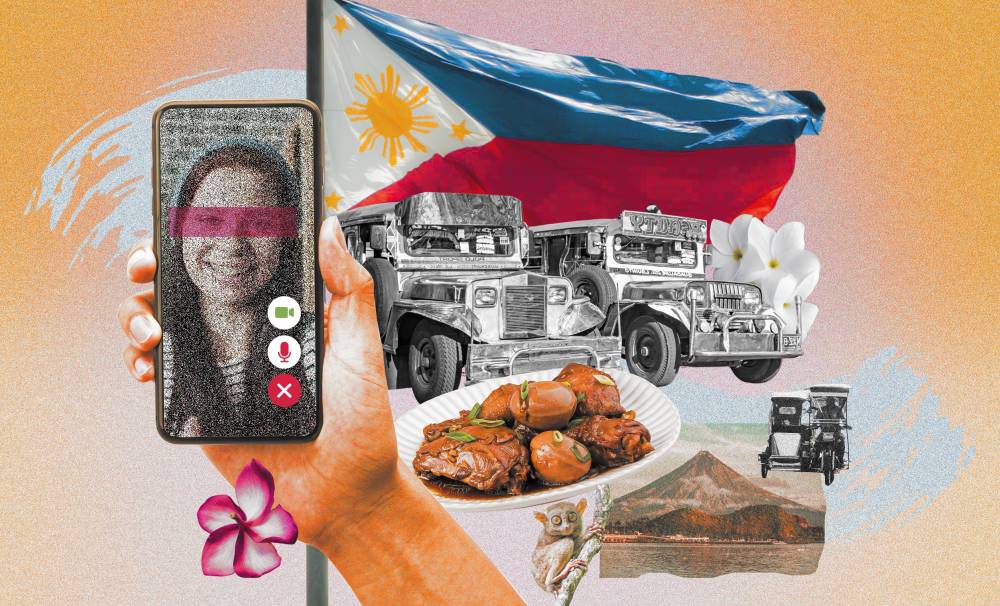From Vegemite to adobo: My Pinoy education

The only thing I knew about the Philippines, prior to my Pinoy education, was Manny Pacquiao. And just like Pacquiao, my Pinoy education smacked me right in the face with blistering speed and from angles I hadn’t previously considered.
The opportunity to immerse oneself in another culture is often sought out by people for a number of reasons: escapism, self-discovery, the pursuit of knowledge or simply for cultural enrichment.
My connection with the Philippines and its people was in some respects cliché, but one I still never saw coming: I met someone.
That someone would go on to become my person, my partner, the origin as well as the catalyst of my educational journey. Love makes us do a lot of things, and for me, it was the acceptance of being thrust into a new set of cultural ideals, language, family dynamics, and even an expanded palate.
Globalization has made it easy to share similar interests in music, film, and art, but a person’s culture is the lens through which they perceive the world and directs how they interact with others. And I wanted to understand my partner on a deeper level, so down the rabbit hole I went.
In the early stages of our relationship, I was very intrigued by her ability to code switch the phonetics of language, as well as aspects of her personality to fit who she was speaking to. I never felt uneasy whenever she was different in the presence of her compatriots, versus when she was speaking with Aussies. On the contrary, it made me keen to understand her more. (Side note: I also wanted to be able to understand the words when I was being cussed at for forgetting to unload the dishwasher—although the message was always received tonally regardless.)
Our relationship began long distance at the height of the pandemic. And during this time, we would be on FaceTime talking about God knows what when all of a sudden, I would hear a knock on her door from their helper Ate Tess, to which my partner’s response, more often than not, would be: “Pasok.”
“Pasok” would become one of the many words that would be burned into my head by sheer repetition of overhearing.
This, along with the many online inumans with my partner’s friends were the beginning of my familiarity with how Tagalog sounded. To this day, I still can’t speak the language, but I can now rely on context clues and my Spanish vocabulary to at least ascertain the general subject or point of interest of the conversation. Over the years I’ve picked up more words through phone calls my partner would have with her family and hometown friends. I would then use the phrases I learned when taking the tricycle, going shopping, and picking up snacks at the sari-sari store, often to people’s surprise and much to my enjoyment.
I remember when I was in a store in Boracay, two girls at the checkout started talking about me in Tagalog and I smiled. The look of dread on their faces as they noticed my grin was priceless. As they awkwardly covered their mouths, it was clear they had figured out that the unassuming white boy had found them out to be chismosas.
One aspect of Filipino culture that took some getting used to was the collectivist way families and communities operated. Having lived in Australia my whole life, I was more familiar with the cultural trait known as tall poppy syndrome—the tendency to cut down those who stand out or appear self-promoting. Australians typically say “How’s it going?” as a polite greeting, not because we actually want to know how your day is going. Ultimately, Australia is an individualist society where self-reliance is highly valued.
In stark contrast, my partner’s family rallied around each other. In times of hardship and in times of celebration, individual and collective achievements were communally celebrated—something I came to deeply admire. It was the it-takes-a-village mentality in action, where anyone could become your “tita” simply because they cared about you enough.
I’ve never felt the embrace of a group of people outside my blood family, quite like I have with my partner’s family, whom I’m blessed to now also call my own. It can be overwhelming at times, as I now have a collective of people with their own concerns, hopes, dreams, and unfiltered opinions about my decisions and how I live my life. But I wouldn’t change it for anything. The pride I feel when my partner’s mum calls me “anak,” when her uncle tells me I’m part of the family now whether I like it or not, or when they remind me that I’m always in their prayers, is something I would never trade for the world.
My appreciation for the Philippines and its people has grown deeper than just my love of eating adobo flakes with garlic rice as a hangover cure, or even a big Filipino breakfast with tapsilog, longganisa or Delimondo corned beef.
While I never in my life expected to be so embraced by a bunch of Pinoys, I now feel so acclimated to the specific nuances and quirks of the culture that I’ve even caught myself saying “Ay naku” when dropping a bit of food or stubbing my toe, even when there are no Filos (what we call Filipinos in Australia) around. My ears even perk up when I hear Tagalog when traveling.
Without a doubt, visiting the Philippines feels like visiting home now. And while my desire to understand the culture may have started from wanting to know my partner on a deeper level, over the years, my own curiosity and love for the culture has sustained my Pinoy education. One thing is for sure: For as long as my Filipino family claims me, I will continue to learn. I belong to them just as much as they belong to me.

















